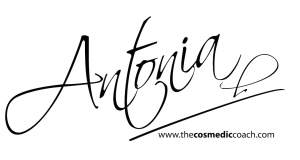 THE FUTURISTIC BEAUTY CUSTOMER
THE FUTURISTIC BEAUTY CUSTOMER
Fast forward the clock, ten years down the line and what does the future of the beauty industry look like?
Four key trends dominate the future and they are: Water, Technology, Natural Ingredients, and Innovation.
Mintel Beauty and Personal Care (BPC) published their trend predictions forecast for the next decade this week, and outlined a future where the line between human and technological device blurs, water becomes a protected resource, energy concerns ring true and natural ingredients take centre stage, stating that beauty brands must innovate to stay relevant.
Jane Henderson, Global President of Beauty and Personal Care Division at Mintel, said:
“We are living in exciting times with revolutionary advancements in technology, brand partnerships and product development. However, we think the coming years will bring stark contrasts in personal technology and natural ingredients that will drive beauty innovation over the next decade. Already, beauty manufacturers are working on new generations of beauty products that will satisfy consumers needs for speed and efficacy.”
AUGMENTED HUMAN
Smart technology is now putting consumers in greater control of their individual health and beauty needs. Today’s beauty customer is savvy, smart and switched on, expect that to exceed in the future as diagnostics, and customized formulations take centre stage, consumers will be researching products specific to their individual needs. Ten years down the line, generic beauty products will start to be less mainstream, as the need for ‘bespoke’ increases.
Wearable technology in beauty in on the up, indications by Mintel suggest that nearly half (48%) of UK suncare users would be interested in an app that can be used to track changes in their skin or moles.
New product development of ‘wearable technology’ will increasingly become part of the body, from micro patches that monitor skin condition to ingestibles that send information to connected devices from the stomach, tracking the movement and efficacy of beauty supplements. However, as new technology enables consumers to track the impact of beauty products, brands will be under greater pressure to prove efficacy, with this comes the hope of a much tighter regulated industry across Europe and the UK.
WATER: THE NEW LUXURY
Water is set to become a precious commodity as consumption outstrips supply. Beauty brands will need to change how they manufacture and formulate products to limit their dependence on water. With water expected to become a highly protected resource, using it the way consumers have in the past will simply not be viable in the years to come. In the UK, one third (33%) of consumers say they would pay more for fixtures that save on water or energy bills. As consumers cut back their usage they expect brands to do the same, and some are already taking notice. Where water was once an essential part of some beauty regimes, new environmental formulations require little or no extra water in order to function.
POWER PLAY
Consumers are facing an energy crisis as the pace of modern life catches up with them. Aware of their need to make long-term lifestyle changes, beauty brands are delivering products that put energy claims at the forefront. As energy levels are becoming a key concern for consumers around the world, Mintel research indicates nearly four in five UK adults (79%) hate feeling low on energy. What is more, in the US, tiredness or fatigue ranks second as a health concern.
GASTRONOMIA
The saying goes, ‘it’s what’s on the inside that counts’, and there is no better way of knowing the ingredients of a product than preparing it yourself. Beauty products are coming out from the shadows of laboratories and into the spotlight of consumers’ kitchen counters. Attitudinal changes toward natural ingredients have acted as a catalyst in the rise of ‘kitchen beauty’ – products that can be made at the kitchen table, but still reflect the latest beauty styles – and is driven by a desire for consumers to feel in control of their beauty products. Nearly half (48%) of Italian and Spanish consumers buy natural and organic personal care products because they believe the products are better for their health.
*Research from Mintel 2015

